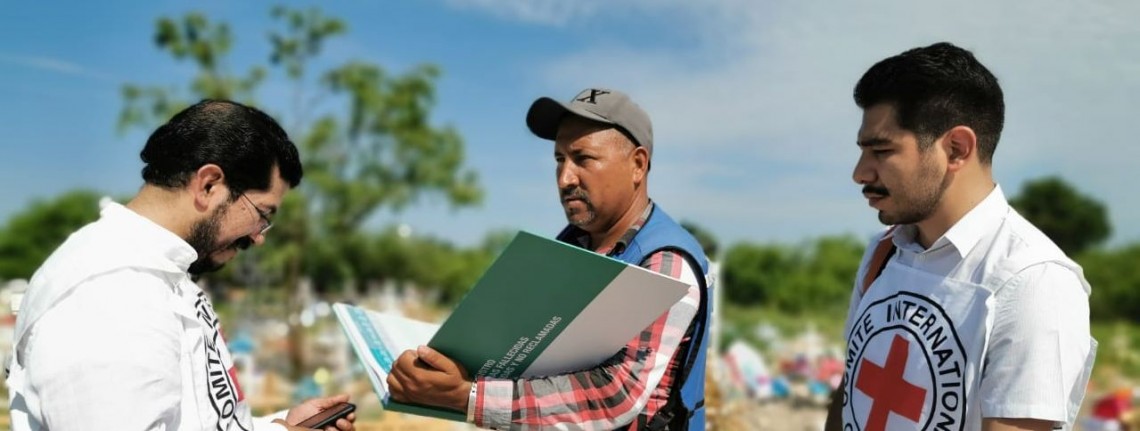
Mexico: The Missing

In Mexico, as in the rest of the world, the ICRC promotes the inclusion of humanitarian objectives and responses in government measures in this area in order to address the suffering of families of the missing, including mental health support. It also encourages the government to adopt measures in line with the scale and complexity of the problem. We believe that the best way to deliver timely, good-quality responses is to fully implement the model established in the Missing Persons Act, which came into force in 2018. It provides for the creation of a number of bodies, tools and mechanisms for coordination at the federal and state level and establishes the principle of "joint participation" by the families of missing people, who are recognized as agents as well as beneficiaries.
We advise the authorities of some states (for example, Mexico, Querétaro, Coahuila and Veracruz) on how to bring their legal frameworks into line with the Missing Persons Act.

In Guadalajara, Jalisco, relatives of missing persons attend an integration session of the ICRC programme to support families of missing persons. ICRC/B. Islas
We also contributed, at the federal level, to designing the extraordinary forensic identification mechanism, the standard search protocol and the north-east regional search plan.
In order to increase coordination among the different authorities and improve the effectiveness of search mechanisms, it is necessary to continue strengthening the national search system and its ability to coordinate with the states; consider the creation of local coordination mechanisms; develop the unified information technology and computer system; and approve the standard search protocol and other standard operating procedures for forensic investigation.
The activities we carried out to this end included familiarizing federal authorities (INE, National Search Commission and Public Prosecutor's Office) with the processes implemented in Colombia for the identification of bodies using fingerprinting, with a view to adapting the processes used in Mexico to search for matches between post-mortem fingerprints and administrative records.
We also provided monitoring and guidance on the establishment of basic forensic records for the forensic examination services of the states of Guerrero, Jalisco, Coahuila, Mexico, Veracruz and Puebla.
It is crucial for the families of missing people to be at the centre of all activities in order to ensure their involvement in every step of the process. The response is for them; it is they who are searching and who know better than anyone what they need.
Sergio belongs to an association of families who are looking for people who went missing in Guerrero. After years of looking for his daughter, he finally found her although, sadly, she was dead.
